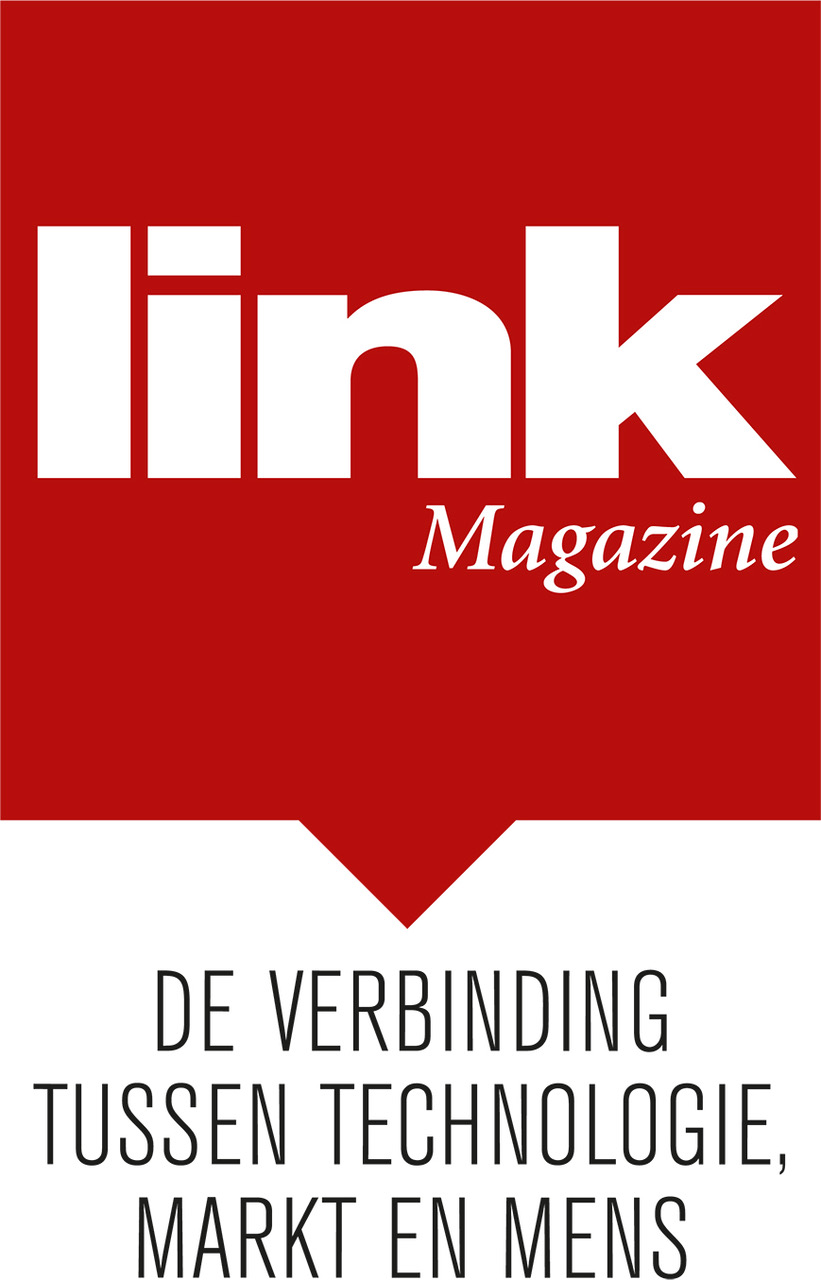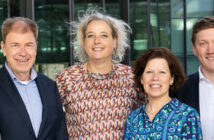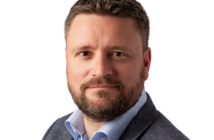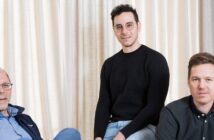Many companies in the southern Netherlands are focusing on the (Far) East and are setting up shop in Asia. How does that work in terms of staff? What about cultural differences? Four companies from Brabant talk about their experiences and the lessons they have learned.
You open an office in Asia, then what? What should you expect? How do you deal with a completely different culture? What about the level of knowledge of local staff? If you talk to companies in Southern-Netherlands that have taken the plunge, you will hear mostly positive stories. Of course, you need to make thorough preparations. And of course it takes some getting used to and you have to leave ‘Holland’ at home. But from then on it is mostly positive. ‘When you work on a good relationship, you can always count on great commitment.’
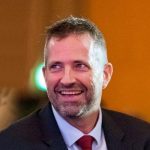
Roald Dogge, director of corporate accounts at NTS
Repercussions
That is a quote from Roald Dogge, director of corporate accounts at NTS in Eindhoven. As Senior Vice President Asia, he spent 5.5 years in Singapore, plus another year and a half in India and eight years in China. So he is a real expert by experience. And he says: ‘In general, people in Asia are loyal to the manager. Give them confidence, and they take initiative. Let them know they can speak up with impunity, and they will tell you how to do it better.’
NTS develops, produces and assembles – complex – mechatronic systems and modules for international high-tech machine builders. The company has been active in Asia since 2003, first in Shanghai, later also in Singapore. At the moment around three hundred people work in the region. Initially, NTS went to Asia because of the ‘customer’s service needs,’ says Dogge. ‘There we were able to produce modules faster for the customer.’ Gradually, the lower cost price also proved a benefit. And now the company manufactures products for customers worldwide, which are tested and assembled on site.
Frame of reference
‘Yes, working in the east is definitely not that bad after all,’ says Dogge. ‘But you definitely have to change your own frame of reference. Something that works well in the Netherlands may not work at all in Asia. Our solutions are for our environment, not necessarily for the local market.’ So you have to have a thorough understanding of the local needs, Dogge says. For example, in many Eastern countries they don’t care about luxury and image, or at least a lot less. ‘Your product doesn’t have to exude status, it just has to be good.’
And what about the technological knowledge of the local workforce? Asia is big, says Dogge, so that knowledge varies greatly from country to country. ‘In Japan the knowledge is comparable to Europe, in China you have technologically advanced regions and regions that are lagging behind.’
The people themselves are very passionate, as Dogge has seen over the years. They want to work hard, are flexible and – if pushed – they are definitely vocal. ‘They must know that they come up with their ideas of their own with impunity. Then they’re loyal. But you have to keep working on an open relationship. Keep giving people respect. They’re not very good at losing face. In short, you have to try to understand what drives people. Much like you have to do in the Netherlands.’
Century of the Asians
The 21st century will be the century of the Asians, according to Hans Duisters. ‘A large market, with great needs and great opportunities, that’s where you need to be as a company.’ Duisters is the CEO of Sioux Technologies in Eindhoven. The company (developer and builder of smart technology modules, IoT solutions and software) opened its first office in Vietnam eight years ago. China and Singapore followed later. The branch in China was set up by Duisters himself three years ago, he tells us via Zoom, self-isolated in Shanghai after returning from the Netherlands.
A great deal of time was set aside for that Chinese adventure. ‘The first year was preparation: having talks, getting to really know the culture, the language and the people, looking into local needs. Where will you set up shop? What is the role of the government?’ In the second year the Suzhou office was actually set up and now – in its third year – it is beginning to take off.
Those preparations were really crucial to get to know the country and culture, says Duisters. ‘The role of the government alone is already completely different from ours. It is very dominant, for example involved in half of all high-tech companies. As a western company, you can’t ignore this. And you shouldn’t want to either, because by far the majority of people are very proud of the government and the state of their nation. If you want to do business properly, you have to understand these things, and go with the flow.’
Progress
Duisters recognises Dogge’s observation that people are flexible. But they are also hugely competitive, he says. ‘They all want to study at the best universities, live in the best cities, work at the best companies. It’s a real drive for progress.’
Doesn’t have to be right the first time here.
Sioux now has a total of about one hundred people working in Asia, mostly highly skilled engineers. Recruiting the right people is still a challenge, Duisters has found. ‘There is a lot of well-trained staff, but not very many with enough experience. And that’s what we need. So as a company you have to put a lot of time and energy into that. Fortunately, most are keen to work for a western company. In part because they offer a better life/work balance. “Is it 996 in your company?” applicants asked us. No idea what that meant. It means that, like at Alibaba and other Chinese companies, you work from nine to nine – six days a week. “No, it isn’t,” we would say, to the surprise of the applicants.’
What about things such as making deals? According to Duisters, you have to invest a lot of time in building up trust. Work in small steps, one project at a time. ‘Unlike in Europe, something doesn’t have to be right the first time here. You can promise that you will come up with a good product, but here they attach more importance to time-to-market.’
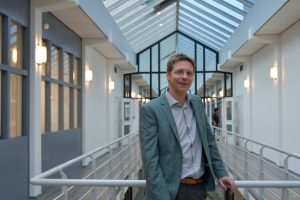
In Singapore, reliability takes precedence over content, says Eric Tielemans (Demcon). It is a culture in which there is a lot of mutual acceptance. Photo: Demcon
Special conversations
Demcon Advanced Mechatronics has had a branch office in Singapore and an agency in Japan (which will become a branch office this year) for two years. According to Managing Director Eric Tielemans, Demcon in Singapore is more or less an outsider. ‘It is a production environment. We mainly do R&D there, which makes us special. But it also makes for some very special conversations.’
In any case, there is a lot of talk, in Tielemans’ experience. ‘The atmosphere is informal. People value building relationships. And that can take a long time in our eyes, yes. You can’t do business or conclude contracts until you have gained their trust. You have to invest a lot of time and energy in that.’
In Singapore, reliability takes precedence over content, says Tielemans. It is a culture in which there is a lot of mutual acceptance. ‘In such a case, you can’t really make a wrong proposal. If it’s not good, you get another chance tomorrow, so to speak.’
Such a way of doing business does require an attentive listener. Because while in the Netherlands you can just say ‘no’ to a proposal, in Singapore they are less straightforward. ‘You don’t hear that there’s no interest. It’s gradually getting quiet. They don’t call anymore, they don’t respond to mails anymore. You have to understand that.’
In terms of employees, Tielemans has the same experiences as Duisters and Dogge. Friendly, open and inquisitive people. ‘The quality is excellent. They work hard and are committed. Their mentality is good; they’re happy to go the extra mile for you if they feel heard and seen. And, not unimportantly, you can make arrangements with them. Possibly even better than in the Netherlands.’
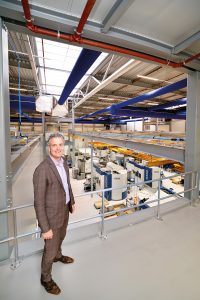
We produce for our customers here, says Edward Voncken of KMWE. ‘And we do that with local people. With the exception of the manager, they are all Malaysians.’ Photo: Bart van Overbeeke
Little staff turnover
KMWE in Eindhoven assembles high-quality modules, machine systems and complex technological components. The company followed a customer to Malaysia in 2009. Starting with three people, the company now has 200 employees on site and a turnover of 25 million. We produce for our customers here, says Edward Voncken of KMWE. ‘And we do that with local people. With the exception of the manager, they are all Malaysians.’
And Voncken says that this works really well. ‘The people are highly motivated and involved with the company. We also have hardly any staff turnover. The people who joined the company at the start are still working here. That really says something about their motivation and drive.’
Malaysians are generally well and highly educated. But, as Voncken points out, a career in the office is preferable to a nice workplace in the factory. ‘It is difficult to find people who can do complex machining jobs. We are now training them ourselves. With a company we took over in Malaysia and in Eindhoven. When we move them to the head office, they consider it a real honour. As an affirmation that we respect and value them. And we do of course.’
Just like the other experts by experience, Voncken sees that the average ‘Asian’ is much more modest than we are used to in the Netherlands. ‘They have their own opinions, of course, but they don’t give them so readily – out of respect and from a hierarchical point of view. It is important for us to be aware of this. And that we proactively ask for their opinion or input. Because that’s good for everyone.’
Expectations
And, finally, how do the four companies look to the future? What are the prospects? For each of them: good. ‘We are growing above average and this will continue for some time,’ says Dogge of NTS for example. Tielemans of Demcon says : ‘This spring our office in Japan will open. That’s what we’ll focus on this year. I also foresee growth in our markets, such as medical devices and back-end semiconductors. In Singapore we are going to double in turnover and size. We’re optimistic.’ That also applies to KMWE, says Voncken. ‘In Malaysia, I expect we will continue to grow, also in terms of new business. Moreover, we are planning to open a branch in China. The same way we did in Singapore: just start and then grow gradually.’
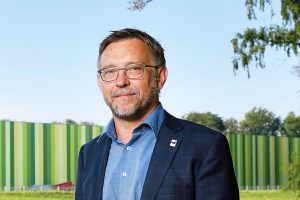
John Blankendaal, directeur Brainport Industries
Hightech Hub in Suzhou
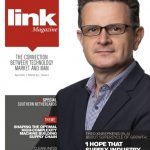
Theo Kneepkens
(KLA) about supercycle of growth: Í hope that supply industry expands its capacity’. Read this edition of link magazine digitally via this link
Sioux Technologies is the initiator of a hub for high-tech companies in China, the Sino Dutch High-Tech Innovation Port, based in Suzhou – not surprisingly the place where Sioux is located. At the centre, Dutch companies can share knowledge, form partnerships and explore the market together, says Hans Duisters of Sioux. ‘We have been successful for years with Brainport Industries in Brabant. Why not set up something similar in China?’ The facilities are there. Companies can receive local clients and authorities there, recruit talented employees, and jointly develop R&D activities, for example. ‘I am sure that the hub can contribute to the success of Dutch companies in China.’
Companies in North-Brabant would do wise to turn their attention to Southeast Asia as well, says managing director John Blankendaal of Brainport Industries. He acknowledges the importance of the region. ‘There’s a lot going on and a lot to do. Companies initially went there because of the low costs, but increasingly also because there are many knowledge partners. And they can make a valuable contribution to the innovation strategy of the companies here,’ says Blankendaal.
However, entrepreneurs do not necessarily have to open an actual branch right away. ‘There are enough opportunities to start in phases, together with other companies based in Noord-Brabant. For example, they can start with an agency or a sales office. And the members of Brainport Industries have a great deal of knowledge of the region, so you can certainly use that to your advantage if you are considering operating in Southeast Asia. Most are perfectly willing to share their knowledge.’
